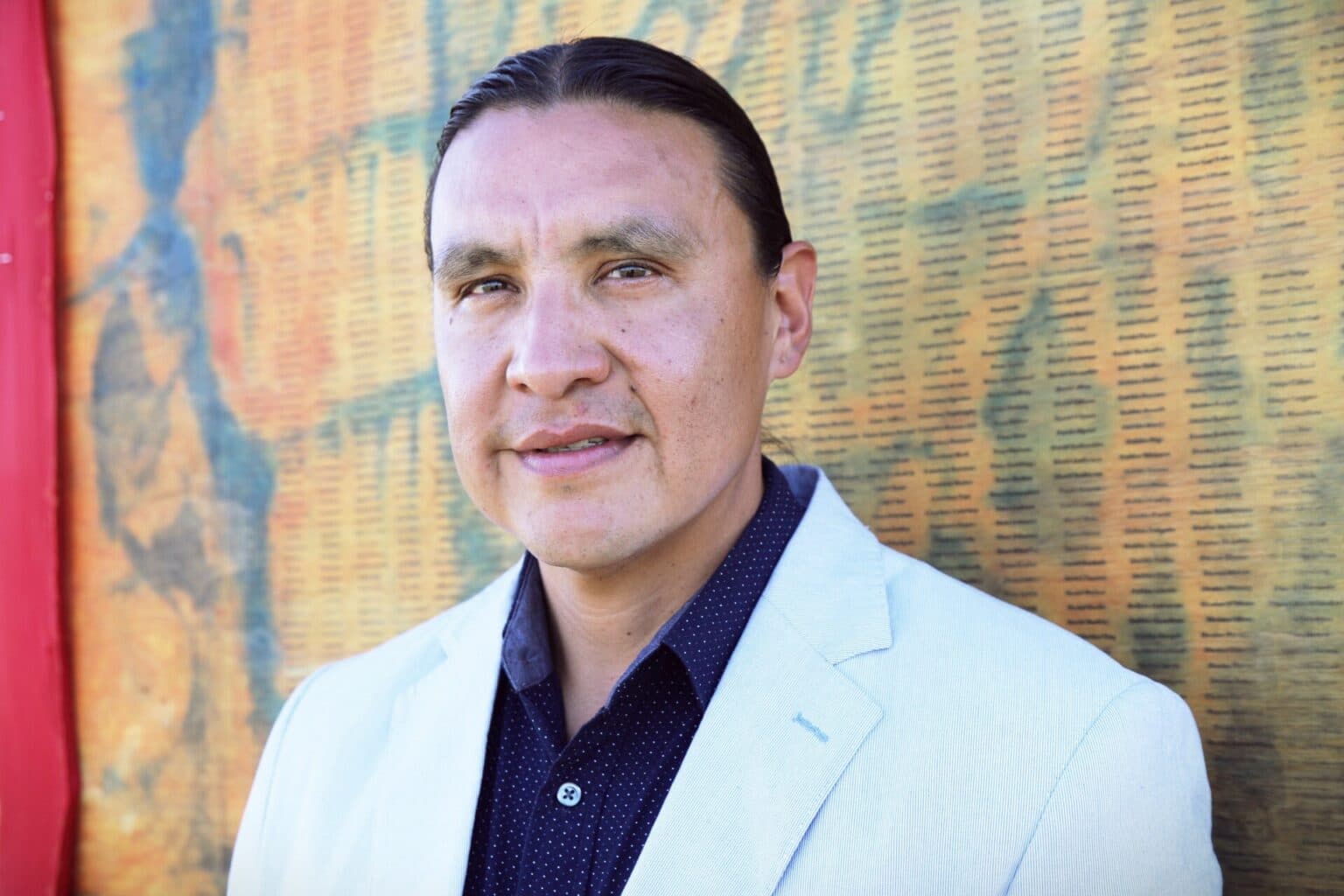The monumental Gila River Indian Community Water Rights Settlement celebrates its 21st anniversary
Native activist says treaty rights forgotten in DAPL trial
Iron Eyes says Army Corps had little impact on protester behavior
Mary Steurer
North Dakota Monitor

Chase Iron Eyes is director of the Lakota People’s Law Project. (Contributed/Lakota People’s Law Project via North Dakota Monitor)
An attorney and Indigenous rights advocate involved in the Dakota Access Pipeline protests said the American justice system simply isn’t equipped to uphold treaty law.
That’s partially why the demonstrations were so important, he said.
“We don’t like our chances in court,” said Chase Iron Eyes, director and lead counsel for the Lakota People’s Law Project.
Iron Eyes was called as a witness for the United States in a lawsuit over the federal government’s response to protests against the pipeline, commonly referred to as DAPL.
Protesters gathered in south central North Dakota in 2016 and 2017 to support the Standing Rock Sioux Tribe, which was opposed to the pipeline out of concerns it infringed on tribal sovereignty and would pollute the tribe’s water supply.
North Dakota argues that actions taken by federal agencies during the demonstrations exacerbated and prolonged the protests, causing the state to incur at least $38 million in expenses. Attorneys for the United States have countered that North Dakota is overstating both the costs of the demonstrations and the federal government’s influence over the course of the protests.
The bench trial, conducted by U.S. District Court Judge Dan Traynor, began in February. It’s on track to finish at the end of this week.
Testifying was a frustrating experience, Iron Eyes said after a hearing Monday afternoon.
While the lawsuit is between North Dakota and the federal government, tribal sovereignty is central to the case, he said.
“We were there on a completely different basis of law,” Iron Eyes said.
One of the main arguments put forward by North Dakota is that the U.S. Army Corps of Engineers was complicit in protesters’ occupation of federal and private land north of the Cannonball River. But an 1851 treaty between the Sioux Nation and the United States government suggests that area is tribal land, Iron Eyes said.
“We signed a treaty with the Americans and we didn’t forget,” he testified. “Some people act like it’s ancient history, but we didn’t forget.”
Iron Eyes was raised on the Standing Rock Reservation and was an enrolled member of the tribe until 2019. He now lives on the Pine Ridge Reservation in South Dakota and is an enrolled member of the Oglala Sioux Tribe.
Though he said he was not a lead organizer of DAPL protests, he got involved early on. In 2016, Iron Eyes was also running as a Democrat to represent North Dakota in the U.S. House of Representatives.
Iron Eyes said that given the tribes’ history with the U.S. government, many people came into the protests already highly distrustful of the Army Corps of Engineers and other agencies.
From what he could tell, any actions by the Corps to manage the demonstrations largely went ignored.
“The Army Corps wasn’t really relevant to what we were doing,” Iron Eyes testified, noting that Standing Rock leadership may have felt differently.
He pointed to a September 2016 incident where a private security company contracted by Energy Transfer Partners used police dogs on protesters as a major inflection point in the protests.
Interest in the demonstrations grew significantly after that incident, he said.
Iron Eyes was arrested during the protests and charged with felony inciting a riot. He later pleaded guilty to a reduced charge of misdemeanor disorderly conduct, The Bismarck Tribune reported at the time. During Monday’s hearing, Iron Eyes said his actions were mischaracterized by law enforcement and he felt he was targeted.
Iron Eyes said Energy Transfer Partners should be asked to pay $38 million, not the federal government.
Winona LaDuke — former executive director of Honor the Earth, an environmental group involved in protesting the pipeline — is expected to appear as a witness Tuesday morning.
External
Inspired by her grandparents, Tonah Fishinghawk-Chavez proves that caring for the community is an action, not just a word
Indigenous participation may be highest in the climate conference’s history
Thousands peacefully protest
At an oak savannah near Eugene, Oregon, TEIP interns and elders carry forward a time-honored tradition, restoring meadow health and renewing relationship with the land
Steve Sitting Bear elected as chairman






